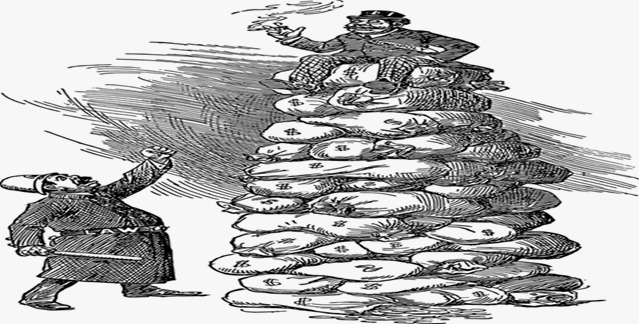NEW GLOBAL ALLIANCE: A GAME-CHANGER FOR 21ST CENTURY GEOPOLITICS
The fast-evolving landscape of global geopolitics in the 21st century, the formation of new global alliances has emerged as a significant game-changer. These alliances are reshaping the traditional power dynamics, influencing international relations, and shaping the future of global governance. This concept of new global alliances and examines their role as game-changers in 21st-century geopolitics.
New global alliances are indeed game-changers for 21st-century geopolitics, reshaping traditional power structures, influencing international relations, and fostering regional stability. As the world evolves and faces new challenges, the formation of alliances between countries becomes crucial in shaping the global landscape. These alliances not only impact the dynamics of power but also have far-reaching consequences on international cooperation, conflict resolution, and the overall stability of regions across the globe.
The formation of new global alliances has become a prominent feature of this landscape, as countries seek to align themselves with like-minded partners to bolster their influence and address common challenges. These alliances are not only reshaping traditional power structures but also have a profound impact on international relations and regional stability.
The 21st century has witnessed a shift from a unipolar world dominated by a single superpower to a more multipolar global order characterized by the rise of new power centers and the emergence of diverse challenges. In this context, new global alliances have gained prominence as strategic tools to advance shared interests, promote regional stability, and address common challenges. One exemplary alliance that embodies this trend is the Quad, comprising the United States, India, Japan, and Australia.
The formation of the Quad alliance comprising the United States, Japan, India, and Australia has emerged as a counterbalance to Chinese influence in the Indo-Pacific region. This alliance has bolstered the security cooperation among its members and sent a strong signal to China regarding their shared commitment to upholding a rules-based order in the region. This shift in power dynamics has significant implications for China’s regional ambitions and has forced Beijing to recalibrate its approach to regional security.
The Quad represents a strategic partnership aimed at fostering a free and open Indo-Pacific region, promoting maritime security, and ensuring a rules-based order. By coming together, these nations are signaling a collective commitment to counter Chinese assertiveness and maintain a balance of power in the region.
The potential to influence international relations by fostering cooperation on key issues such as climate change, counterterrorism, and pandemic response. For instance, the Paris Agreement on climate change brought together countries from around the world in a collective effort to combat global warming and reduce carbon emissions. By forging alliances on environmental issues, countries can amplify their impact and contribute to global efforts to address pressing challenges that transcend national borders. These alliances also facilitate the sharing of resources, expertise, and best practices, leading to more effective and coordinated responses to transnational threats.
Furthermore, the Belt and Road Initiative (BRI) led by China has sparked the formation of alternative alliances and partnerships among countries seeking to counterbalance Beijing’s growing influence. The Indo-Pacific concept has gained traction as a strategic framework to enhance cooperation among like-minded countries in the region to uphold freedom of navigation, promote economic prosperity, and ensure a rules-based order.
Countries such as Japan, India, Australia, and the United States are actively engaging in various forms of trilateral and multilateral cooperation under the Indo-Pacific framework to promote regional stability and counter China’s expanding footprint. These alliances serve as force multipliers enabling countries to pool resources, share intelligence, and coordinate policies to address common security challenges effectively.
Moreover, the European Union (EU) represents a unique form of regional alliance that plays a crucial role in shaping global and single market and a key actor and soft power to advance in international affairs the EU its interests and values on the world stage. The EU’s Common Foreign and Security Policy (CFSP) serves as a platform for member states to coordinate their positions on a wide range of global issues, from climate change to conflict resolution. The EU’s emphasis on multilateralism, human rights, and international cooperation underscores its commitment to shaping a rules-based global order based on shared values and principles.
Reshaping power structures and international relations, new global alliances play a crucial role in fostering regional stability. By promoting dialogue, cooperation, and conflict resolution among countries, these alliances contribute to the prevention and mitigation of conflicts that could destabilize entire regions. The Gulf Cooperation Council (GCC), for example, has helped maintain stability in the Middle East by providing a platform for member states to address common security concerns and promote economic cooperation. Through mutual defense agreements, confidence-building measures, and diplomatic engagement, regional alliances can build trust among member states and reduce the risk of escalation in times of crisis.
New global alliances are indeed game-changers for 21st-century geopolitics, reshaping traditional power structures, influencing international relations, and fostering regional stability. These alliances are instrumental in addressing common challenges, countering assertive powers, and promoting a rules-based global order. As countries strive to navigate the complex geopolitical landscape of the 21st century, forging strategic partnerships and alliances will remain key to achieving collective security, prosperity, and peace in an increasingly interconnected world.



